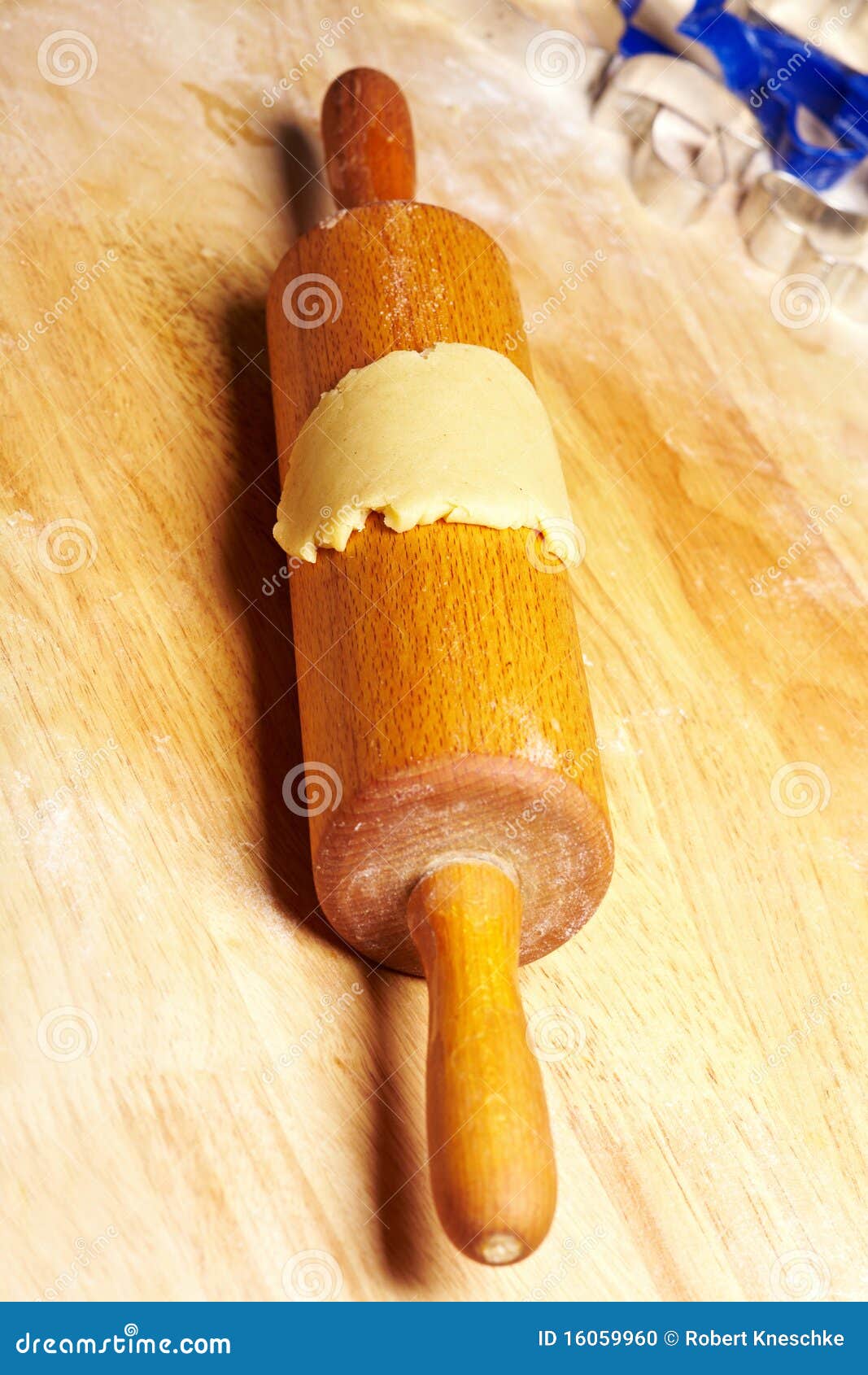
Rolling Out Dough for Baking Cookies Stock Image Image of sugar, bake
Give the dough a few rolls in one direction and then give it a quarter turn. Roll it out again with a few strokes. If at any point during rolling you find that the dough is curling up at the edges (picture above), it is time to release the plastic wrap from the dough and reposition it. You can resume your rolling.

The BEST Way to Roll Out Cookie Dough YouTube
2. Roll out the dough. Roll out the dough as you normally would with your rolling pin, making sure to flip the whole thing, paper and all, over a few times so the dough rolls out evenly. 3. Now chill the dough. The dough is still too soft to stamp out, so place it in the fridge for at least 30 minutes, or the freezer for 15.

Easily Create The Cutest Cookies With Embossed Rolling Pins Recipe
Roll dough between sheets of parchment or waxed paper. Rather than roll dough on a floured surface, roll it between sheets of non-stick parchment or waxed paper. Adding extra flour to the dough while rolling can make cookies tough. And cutout cookies release easily from paper when you move them to the baking sheet, preserving their shape.

Why Pastry Cracks When Rolling (And How to Prevent or Fix It) Baking
Solution: Reduce the amount of baking powder or baking soda slightly. Make sure to use the same size eggs that the recipe indicates. An extra-large egg weighs about .25 ounces more than a large egg. If the recipe calls for large eggs, but you use extra-large eggs instead, you've increased the amount of egg by 13%.
Marzipan Tips for Rolling Out Cookie Dough
After 30 minutes, take the dough out of the fridge and cut your shapes! Let the dough harden for around 30 minutes, then take the dough out. There's no need to let it come to room temperature before working with it. You can go from the fridge to your counter and immediately start cutting out shapes.

5 Reasons to Chill Cookie Dough Before Baking Craftsy
Many sugar cookie recipes will ask you to chill the dough post-mixing—and for good reason. As baking buff Erin McDowell has explained, room temperature butter is more likely than cold butter to glom onto the work surface (and, consequently, to require extra flour protection, leading to less tender cookies).Plus, when the dough rests under refrigeration, the protein strands relax and it.

Rolling cookie dough stock image. Image of homemade, shape 17299171
To cut, lay a cookie cutter on the dough, firmly press straight down and lift straight back up without twisting or sliding the cutter. When lifting the cutter, use your finger or a chopstick to gently press on smaller or more detailed areas to help release the dough. If the cutter is sticking, dip the edges in confectioners' sugar before cutting.

It's Probably OK to Eat Raw Cookie Dough — As Long As You're Smart
On a dry day or in areas with low humidity, dough can end up being drier than expected. Less is More with Flour: When rolling, use flour sparingly. Every extra sprinkle gets absorbed, making the dough drier. Avoid Overworking: Overzealous rolling can press out the dough's moisture. Keep it gentle and even.

My dough is cracking while it rises. Sourdough
4 - Over Mixing. After you add all the ingredients into the bowl and start blending the cookie dough, the flour will instantly begin to develop gluten. If you over-mix the dough, the flour will keep developing gluten, which will result in a tough, dry dough. The key is knowing when to stop.

The Rolling Pin cookie dough doughnut (filled with even more cookie
This is much easier said than done, that is unless you use Martha Stewart's paper-towel roll trick when storing them in the fridge. Keeping your cookie dough chilled until you are ready to bake.

Cookie Cutter Recipe Lucky Little Penguins
How to roll a cookie dough log using a cling film. Check out a recipe link below:https://italianfoodfast.com/polenta-biscuits/Make perfectly round cookies at.

Rolling cookie dough stock image. Image of memories, innocence 2416449
Start by adding a few sprinkles of cold water and work it into the dough while handling it as little as possible. When the dough is evenly moist, carefully start to roll it out. If it's still cracking a bit around the edges, let it warm up for 2 to 3 minutes. Any longer and the dough will become too warm.

Cookie Dough Cracks When Rolling? Achieve Perfect Cookie Dough 🍪
Cold Dough. Cold dough can be a major reason why your pastry cracks when rolling. When the dough is too cold, it becomes stiff and less flexible. This stiffness makes it prone to cracking as you try to roll it out. Cold dough can occur if you've just taken it out of the fridge or if the room temperature is particularly chilly.

Easy Homemade Sugar Cookie Dough Recipe Valya's Taste of Home
Yes, that's right -- no need to wrestle with a stiff, ice-cold dough. Rolling it out while it's freshly made is a game-changer.This tip works like a charm because freshly made cookie dough is soft.

Cookie Dough on Rolling Pin Stock Photo Image of board, background
Well, your haste might be the reason why your pastry cracks when you roll it out. Under-rested dough doesn't have time to relax and behave. Allowing your pastry dough to rest before rolling it out is crucial. Resting gives the gluten in the flour time to relax and prevents it from becoming too elastic. It also allows the fats in the dough to.

*Frozen Cookie Dough 1 dozen Chocolate Chip RE Farm Café
Chill Your Dough at Least Once. Cutout cookie dough recipes often call for the dough to be chilled for at least 30 minutes before breaking out the rolling pin. If you're working with a large batch of cookie dough, divide it into a few portions. This will make rolling the dough more manageable.